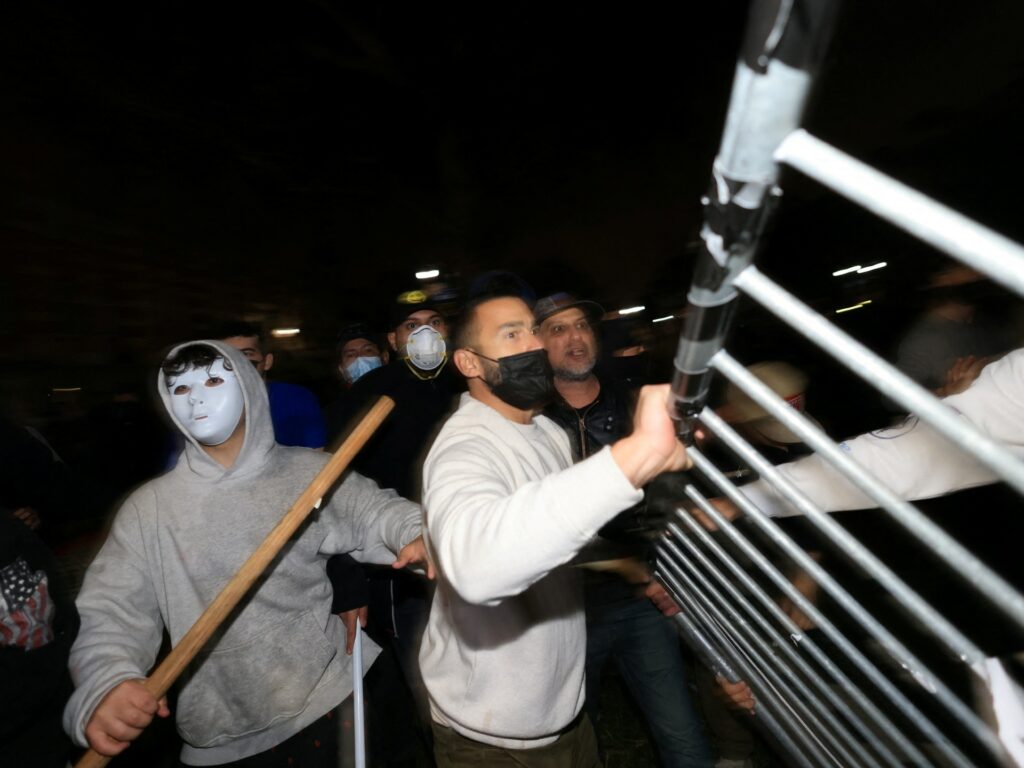New York and California see violence and arrests as Gaza campus protests escalate
Protests against Israel’s war on Gaza have intensified on university campuses in the United States, leading to a night of chaos that included mass arrests in New York and a violent attack in California. The NYPD reported arresting 282 people at Columbia University and the City College of New York, while police cleared students who had been occupying Columbia University’s Hamilton Hall since April 30.
The protesters had named the building “Hind’s Hall” in honor of six-year-old Hind Rajab, who was killed in Gaza by Israeli forces. In California, pro-Israel counter-protesters attempted to dismantle a pro-Palestine encampment at the University of California, Los Angeles (UCLA), resulting in clashes and violence.
Despite the crackdown, the protests continue to gain momentum, with demonstrators vowing to keep up the pressure on universities. The protests began nearly two weeks ago, sparked by outrage over Columbia University President Minouche Shafik’s testimony to a US congressional committee. Critics accused her of prioritizing lawmakers’ interests over those of the students.
The protests have also spread to other campuses, including Tulane University in New Orleans, the University of South Florida, and the University of Wisconsin, Madison. The demonstrations have garnered international attention, with the UN special rapporteur on the occupied Palestinian territory condemning the violent police actions at US universities.
In response to the escalating situation, New York City Mayor Eric Adams defended the police crackdown, claiming that the protests were led by individuals not affiliated with the university. Meanwhile, the Jewish Voice for Peace (JVP) group criticized both the NYPD and Columbia University for their actions, accusing them of repeating past mistakes in suppressing student movements.
As tensions continue to rise, it remains to be seen how universities and law enforcement will respond to the ongoing protests and calls for divestment from Israel and related entities.
#York #arrests #violent #attack #California #Gaza #campus #protests #rage
The ongoing protests against Israel’s war on Gaza at universities across the United States have escalated with mass arrests in New York and a violent attack in California. These incidents highlight the deep divide between pro-Israel and pro-Palestine supporters on college campuses, with tensions running high and clashes becoming more frequent.
The long-term implications of these protests could have far-reaching effects on university campuses and the broader community. As students continue to demand divestment from Israel and accountability from university administrators, there is the potential for increased polarization and unrest. This could lead to further crackdowns by law enforcement and potential disruptions to campus life.
In order to address these challenges and navigate the complexities of the situation, universities must prioritize dialogue and peaceful resolution. It is essential for administrators to engage with student protesters in a respectful and constructive manner, listening to their concerns and working towards solutions that uphold freedom of expression and human rights.
Additionally, law enforcement agencies must exercise restraint and respect the rights of protesters to peacefully assemble. Violence and arrests only serve to escalate tensions and fuel further conflict. It is crucial for authorities to prioritize de-escalation tactics and ensure the safety of all individuals involved in demonstrations.
Moving forward, it is important for universities to implement policies that promote inclusivity and diversity, fostering a campus environment where all voices are heard and respected. By engaging in meaningful dialogue and addressing the root causes of the protests, institutions can work towards building a more peaceful and inclusive community.
Ultimately, the key to resolving the ongoing protests lies in open communication, mutual respect, and a commitment to upholding the values of justice and equality. By taking proactive steps to address the concerns of protesters and promote a culture of understanding, universities can create a more harmonious and inclusive environment for all members of the campus community.

